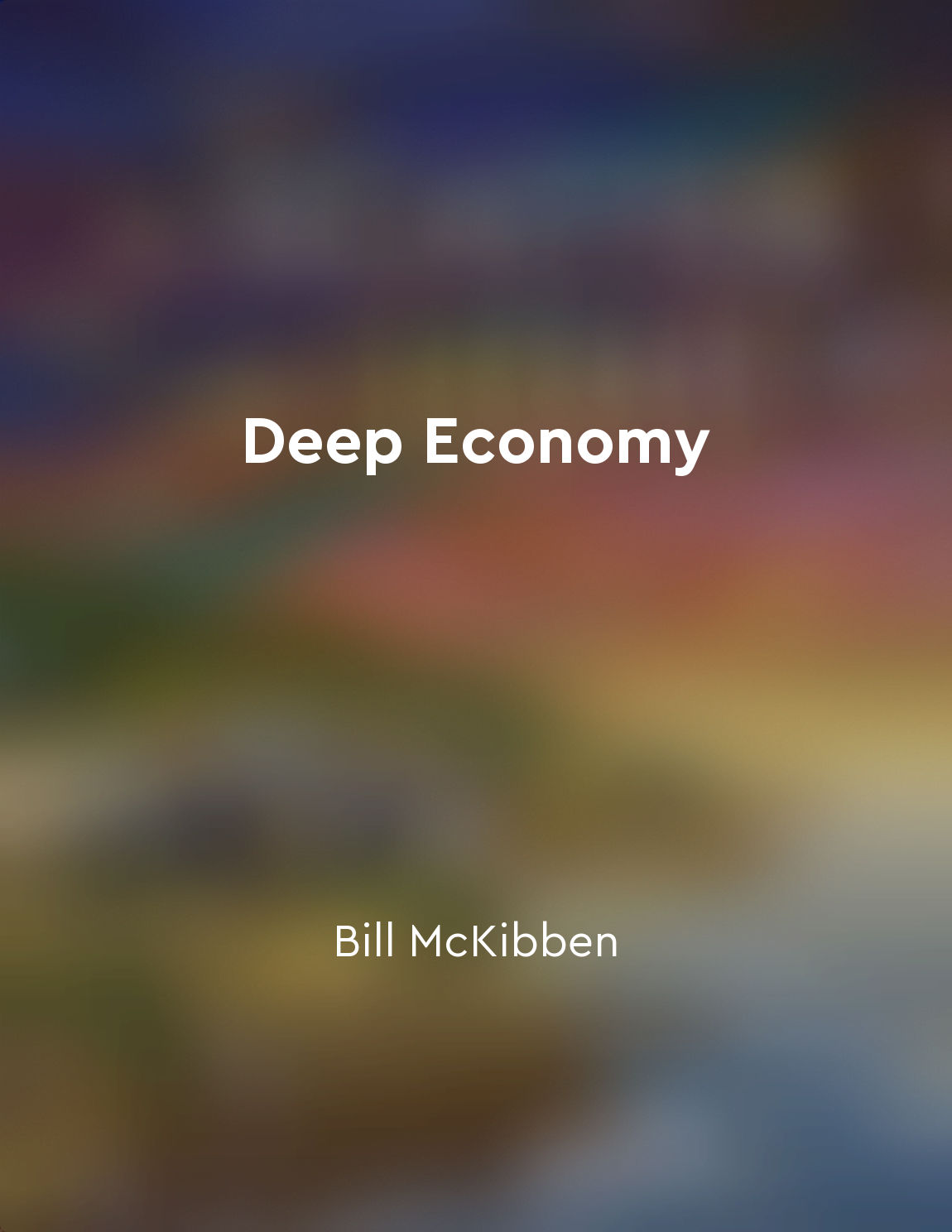Building resilient communities is essential for the future from "summary" of Deep Economy by Bill McKibben
In the face of looming challenges like climate change and economic inequality, it is clear that our current way of life is not sustainable. The pursuit of endless growth has led to a society that is increasingly fragile and vulnerable. In order to thrive in the future, we must shift our focus towards building resilient communities that are capable of withstanding shocks and disruptions. Resilient communities are those that are able to adapt and respond to changes in their environment. They are characterized by strong social connections, local economies, and a sense of shared purpose. By investing in these qualities, we can create a foundation for lasting prosperity and well-being. One of the key benefits of resilient communities is their ability to weather crises. Whether it be a natural disaster, an economic downturn, or a global pandemic, communities that are well-connected and self-reliant are better equipped to bounce back and recover. In contrast, communities that are reliant on distant sources of support and resources are more vulnerable to collapse in times of crisis. Furthermore, resilient communities are more sustainable in the long run. By fostering local economies and reducing our dependence on global supply chains, we can minimize our impact on the environment and build a more resilient infrastructure. This not only helps to mitigate the effects of climate change, but also creates a more stable and equitable society for future generations. In order to build resilient communities, we must prioritize cooperation over competition, and collaboration over individualism. This means investing in local businesses, supporting community initiatives, and building strong social ties that can withstand the tests of time. By working together towards a common goal, we can create a future that is more sustainable, equitable, and resilient for all.Similar Posts
The costs of inaction on climate change far outweigh the costs of prevention
The devastation we face from climate change is vast and escalating. With each passing year of inaction, the costs grow exponent...

Path towards carbon neutrality requires systemic change
The path toward carbon neutrality is not a simple one. It requires more than just individual actions or small-scale solutions. ...
Nature's strategies offer insight
Nature has been around for billions of years, constantly adapting and evolving to survive in a changing world. Throughout this ...
The Earth's climate is a highly complex system that is difficult to predict with certainty, but scientific models can help us understand its underlying dynamics
The Earth's climate is a highly intricate and multifaceted system, characterized by a myriad of interconnected components and p...
Innovation plays a key role in addressing climate challenges
In the battle against climate change, innovation emerges as a powerful ally. It is clear that traditional methods alone may not...
Empowering local communities
The concept of empowering local communities is a foundational principle in the movement towards a more sustainable and equitabl...
Reciprocity and trust are essential components of social capital
Reciprocity and trust lie at the heart of social capital. This concept encompasses the connections between individuals in a com...

